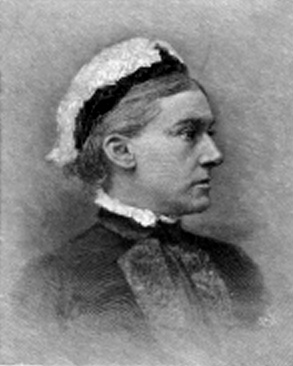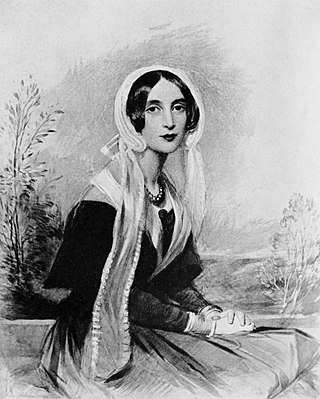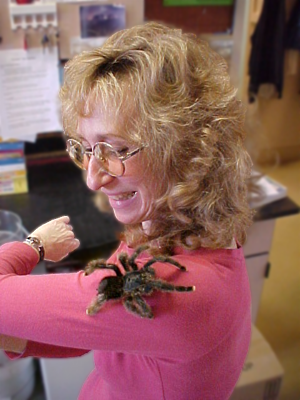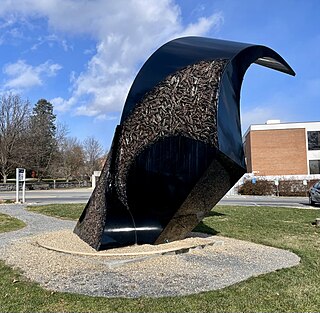Related Research Articles

Mennonites are groups of Anabaptist Christian church communities of denominations. The name is derived from one of the early prominent leaders of the Dutch Anabaptist movement, Menno Simons (1496–1561) of Friesland. Through his writings about Reformed Christianity during the Radical Reformation, Simons articulated and formalized the teachings of earlier Swiss founders, with the early teachings of the Mennonites founded on the belief in both the mission and ministry of Jesus, which the original Anabaptist followers held with great conviction, despite persecution by various Roman Catholic and Mainline Protestant states. Formal Mennonite beliefs were codified in the Dordrecht Confession of Faith in 1632, which affirmed "the baptism of believers only, the washing of the feet as a symbol of servanthood, church discipline, the shunning of the excommunicated, the non-swearing of oaths, marriage within the same church", strict pacifistic physical nonresistance, anti-Catholicism and in general, more emphasis on "true Christianity" involving "being Christian and obeying Christ" as they interpret it from the Holy Bible.
Di Brandt often stylized as di brandt, is a Canadian poet and scholar from Winnipeg, Manitoba. She became Winnipeg's first Poet Laureate in 2018.

Gloria Jean Watkins, better known by her pen name bell hooks, was an American author, theorist, educator, and social critic who was a Distinguished Professor in Residence at Berea College. She is best known for her writings on race, feminism, and class. The focus of hooks' writing was to explore the intersectionality of race, capitalism, and gender, and what she described as their ability to produce and perpetuate systems of oppression and class domination. She published around 40 books, including works that ranged from essays, poetry, and children's books. She published numerous scholarly articles, appeared in documentary films, and participated in public lectures. Her work addressed love, race, class, gender, art, history, sexuality, mass media, and feminism.

Rhoda Broughton was a Welsh novelist and short story writer. Her early novels earned a reputation for sensationalism, so that her later, stronger work tended to be neglected by critics, although she was called a queen of the circulating libraries. Her novel Dear Faustina (1897) has been noted for its homoeroticism. Her novel Lavinia (1902) depicts a seemingly "unmanly" young man, who wishes he had been born as a woman. Broughton descended from the Broughton baronets, as a granddaughter of the 8th baronet. She was a niece of Sheridan le Fanu, who helped her to start her literary career. She was a long-time friend of fellow writer Henry James and was noted for her adversarial relationship with both Lewis Carroll and Oscar Wilde.

Sara Coleridge was an English author and translator. She was the third child and only daughter of the poet Samuel Taylor Coleridge and his wife Sara Fricker.
Robert Beck, better known as Iceberg Slim, was an American former pimp who later became a writer. Beck's novels were adapted into films.

Miriam Toews is a Canadian writer and author of nine books, including A Complicated Kindness (2004), All My Puny Sorrows (2014), and Women Talking (2018). She has won a number of literary prizes including the Governor General's Award for Fiction and the Writers' Trust Engel/Findley Award for her body of work. Toews is also a three-time finalist for the Scotiabank Giller Prize and a two-time winner of the Rogers Writers' Trust Fiction Prize.

Lucas Malet was the pseudonym of Mary St Leger Kingsley, a Victorian novelist. Of her novels, The Wages of Sin (1891) and The History of Sir Richard Calmady (1901) were especially popular. Malet scholar Talia Schaffer notes that she was "widely regarded as one of the premier writers of fiction in the English-speaking world" at the height of her career, but her reputation declined by the end of her life and today she is rarely read or studied. At the height of her popularity she was "compared favorably to Thomas Hardy, and Henry James, with sales rivaling Rudyard Kipling." Malet's fin de siecle novels offer "detailed, sensitive investigations of the psychology of masochism, perverse desires, unconventional gender roles, and the body."

Rhoda Scott is an American soul jazz organist and singer. She is nicknamed "The Barefoot Lady".

Julia Mae Spicher Kasdorf is an American poet.
The Thurber Prize for American Humor, named after American humorist James Thurber, recognizes outstanding contributions in humor writing. The prize is given out by the Thurber House. It was first awarded irregularly, but since 2004 has been bestowed annually. In 2015, the finalists were for the first time, all women. Winners of the Thurber Prize have included authors from an array of diverse backgrounds, from The Daily Show hosts Jon Stewart and Trevor Noah to The New Yorker staff writers Calvin Trillin and Ian Frazier, as well as university professors Julie Schumacher and Harrison Scott Key.
Lillian Faderman is an American historian whose books on lesbian history and LGBT history have earned critical praise and awards. The New York Times named three of her books on its "Notable Books of the Year" list. In addition, The Guardian named her book, Odd Girls and Twilight Lovers, one of the Top 10 Books of Radical History. She was a professor of English at California State University, Fresno, which bestowed her emeritus status, and a visiting professor at University of California, Los Angeles (UCLA). She retired from academe in 2007. Faderman has been referred to as "the mother of lesbian history" for her groundbreaking research and writings on lesbian culture, literature, and history.

Ellen Buckingham Mathews (1849–1920) was a popular female English novelist during the late 19th and early 20th centuries. She was also known as Mrs Reeves after her marriage in 1877 to Dr. Henry Albert Reeves (1841–1914) but was best known under her pen name, Helen Mathers. She was born in Misterton, Somerset. Her first novel, "Comin' thro' the Rye" was published in 1875. It was partly based on people in her life and on her own early romantic experiences. She also acknowledged Rhoda Broughton as an early influence. She continued to write until her death.
Françoise Morvan is a French writer who specialises in Breton history and culture.

10,000 Dresses is a 2008 children's picture book written by Marcus Ewert, illustrated by Rex Ray and published by Seven Stories Press. It is about a young transgender girl named Bailey who dreams of wearing extravagant dresses. When she comes to her parents for help, they are not particularly accepting, but she eventually meets a friend inspired by her courage who is willing to help her out. The book is notable for being one of the first children's books depicting transgender people's experiences.

Sy Montgomery is an American naturalist, author and scriptwriter who writes for children as well as adults.

Orange Is the New Black: My Year in a Women's Prison is a 2010 memoir by American author Piper Kerman, which tells the story of her money laundering and drug trafficking conviction and subsequent year spent in a federal women's prison.
Grace Borgenicht Brandt was an American art dealer.
Mennonite literature emerged in the mid-to-late 20th century as both a literary movement and a distinct genre. Mennonite literature refers to literary works created by or about Mennonites.

Guns into Plowshares is a sculpture by Mennonite artists Esther Augsburger and Michael Augsburger. It depicts the blade of a giant plow, fashioned out of steel and 3,000 disabled handguns. It stands sixteen feet tall and weighs four tons. The work alludes to a passage from the Book of Isaiah in which the ancient Israelite prophet envisions a future when people "shall beat their swords into plowshares, and their spears into pruning hooks; nation shall not lift up sword against nation, neither shall they learn war any more". The image of transforming swords to plowshares has been widely adopted by social and political groups working for peace.
References
- ↑ Rhoda Jenzen (2002). "UCLA Theses". Fair Deceivers: The Art of the Lie in Henry James. ProQuest 276294218.
- ↑ "Rhoda Janzen". Macmillan Publishers.
- ↑ “Interview: Rhoda Janzen, author of Mennonite in a Little Black Dress”, Laurel Rhame, Smith, April 22, 2010.
- ↑ “Rhoda Janzen: From Modern to Mennonite”, Andrea Sachs, Time, October 20, 2009.
- ↑ Hope College
- ↑ “Rhoda Janzen: From Modern to Mennonite”, Andrea Sachs, Time, October 20, 2009.
- ↑ “Mennonite in a Little Black Dress”, Jason Zasky, Failure Magazine.
- ↑ “The Simple Life Comes With Complications”, Cathy Horyn, The New York Times, December 2, 2009.
- ↑ “She Did Go Home Again”, Kate Christensen, The New York Times, November 5, 2009.
- ↑ “New Voices: Rhoda Janzen”, Carol Memmott, USA Today, October 21, 2009.
- ↑ “Interview: Rhoda Janzen, author of Mennonite in a Little Black Dress”, Laurel Rhame, Smith, April 22, 2010.
- ↑ The Poetry Foundation
- ↑ Brandt, Di (2010). "Rhoda Janzen. Mennonite in a Little Black Dress: A Memoir of Going Home. New York: Henry Holt, 2009. Pp. 256. Hardcover, $14.00 (U.S.)". Journal of Mennonite Studies. 28. Retrieved October 22, 2021.
- ↑ Beck, Ervin (April 2015). "Mennonite transgressive literature". Mennonite Quarterly Review. 89 (2): 299+. Retrieved October 22, 2021.